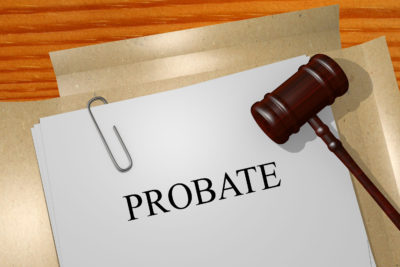Dying without a will in Rogers County creates problems for your estate. Throughout the United States, individuals have been taking all sorts of corona virus-related precautions. But with more than 215,000 deaths in the country and with no end to this pandemic in sight, many pre-retirees and retirees are going a step farther and getting their estate planning done early in light of the worst case scenario. Many Oklahoman’s who are thinking about estate planning wonder about what it means to have a last will and testament, and what happens if you die without one. Answers to these questions and more are below.
What Is a Will in Rogers County
A last will and testament (a will) is a legal document which lays out instructions for what to do with some or all of your assets when you die. Some of your assets that you might distribute will include bank accounts, furniture, jewelry, and any other property titled in your name or in the name of your estate when you die. By executing a valid will, you (the testator) direct that assets for your will cover and distribute according to your instructions. Your executor or executrix (also known as a personal representative) is someone you designate in your will to take care of the administration of your estate which includes carrying out those instructions laid out in your will. dying without a will in Rogers county leaves the distribution of your property up to the Courts in Claremore.
Keep in mind that your will is proven through a court-supervised process called probate. Basically, probate is where the court oversees the accumulation of your assets, the valuation of those assets, the payment of your debts to creditors, and ultimately the distribution of your remaining assets to your beneficiaries.
Theoretically, almost any asset of yours can distribute through your will. However, depending on the type of assets that you own, they could transfer to beneficiaries directly, in effect bypassing both a will and probate. For example, bank accounts listed as TOD or POD call for you to designate someone as a beneficiary of your account. Relatedly, with retirement accounts and investment accounts, it is normal for you to name beneficiaries in advance who will receive those assets at your death.
Wills And Trusts Have Related Features
Additionally, you might be able to avoid probate by creating and funding a revocable living trust during your life. Specifically, a revocable living trust can hold bank accounts, investment accounts, your residence, your personal property and more. Assets in a revocable living trust distribute by your trustee according to the terms of your trust, not the terms of your will.
There are many reasons why it makes sense to use a trust for the disposition of your assets instead of using a will or for that matter dying without a will. One of the most important reasons is to avoid putting your family through probate, which can be costly and time-consuming. Also, the contents of wills can be public info unlike the contents of trusts. Trusts can also continue to exist long after you are no longer here. However, wills and trusts can go hand-in-hand. Specifically, many individuals make use of a pour-over will to transfer any estate assets to a trust so that those assets can ultimately distribute according to the terms of that trust.
Impact of Dying Without a Will
In Oklahoma, your beneficiary is either a legatee or an heir. The main distinction between the two is that the legatee is the beneficiary of someone who dies with a valid will, and an heir is the beneficiary of someone who dies without a valid will. For example, instead of benefiting an estranged son or daughter, you might have plans to benefit other family members or your favorite charity. If you die without a will, you cannot accomplish that objective.
If you die without a will, you are intestate. This results in the State of Oklahoma distributing your assets according to a descent and distribution scheme. The scheme consists of the following arrangements at your death:
- Spouse, children: If you are married with children at your death, then your spouse gets 50% of your intestate property and your children share in the remaining 50%.
- Children, no spouse: If you are not married but you have children, then your children get everything in your estate. Notably, if one of your children dies before you, and that deceased child has children, then the share that would normally go to your now-deceased child will instead go to their children (your grandchildren).
- Spouse, descendant from someone other than spouse (e.g. children from your prior marriage): Your spouse will get half of your intestate property, and your descendants share in the remainder.
- Spouse, parents, no children: Your spouse will get the property jointly acquired during your marriage plus one-third of the intestate property, while your parents will get the remainder. Notably, similar to divorce, when you obtain assets prior to your marriage, then those assets are typically not counted as far as what property your spouse gets.
- Spouse, siblings, no descendants or parents: Your spouse will get the property jointly acquired during your marriage plus one-third of the intestate property, while your siblings will get the remainder.
- Spouse, no descendants, siblings or parents: Your spouse will get everything.
- Siblings, no descendants, spouse or parents: Your siblings will get everything.
- Parents, no descendants or spouse: Your parents will get everything.
If you don’t have a will or living family members at your death, Oklahoma becomes the owner through escheatment and presumptively uses those assets to support education. However, this process won’t happen as long as you have extended family members.
Your Family Might Not Be Treated Equally With Inheritance
Not surprisingly, if you have a child that is born to your wife while you are in a legal marriage, the law assumes this child to be yours and will receive a share of your intestate estate.
However, if you have stepchildren or foster children that you have not adopted, then they will not automatically have any entitlement to an intestate share for those dying without a will. Also, if your children were legally adopted by another family, then those adopted children will not receive anything from your intestate estate unless it is a child who has been adopted by your spouse.
If you have adopted children, then they will receive an intestate share just the same as your biological children will receive. Also, if your child is not conceived until after your death (known as a posthumous child), then they will receive an intestate share.
In addition, if you have children that have been born outside of your marriage, then it is possible for those children to receive an intestate share. However, this requires that you either: marry the mother and acknowledge those children as your own; confirm paternity; hold those children out as your own; or your paternity is proven in accordance with Oklahoma law.
It is also important to know that half-relatives are the same as whole-relatives. Suppose that you have a brother from the same parents, and you have two half-sisters. Your brother and each half-sister would typically be the same as far as their inheritance from you goes.
Creating Or Revoking A Will
You have to sign or acknowledge your will in front of two witnesses, declare that you are signing or acknowledging your will, and your two witnesses have to sign your will in your presence. If not done properly the court will not recognize the will and it’s like dying without one. Changes to the will also require these formalities. To revoke your will, you could destroy it or execute another one; however, it is best to run your thoughts by an attorney first.
Claremore Probate Attorneys
The Kania Law Office Claremore attorneys has helped many clients with estate plans that are tailored to their unique needs and which provide for the effective distribution of your property when you pass away. Dying without a will in Rogers county leaves your property distribution up to the Courts. This is how we avoid this with Estate planning including wills trusts and other Estate planning documentation. Call today and get the assistance you need.
